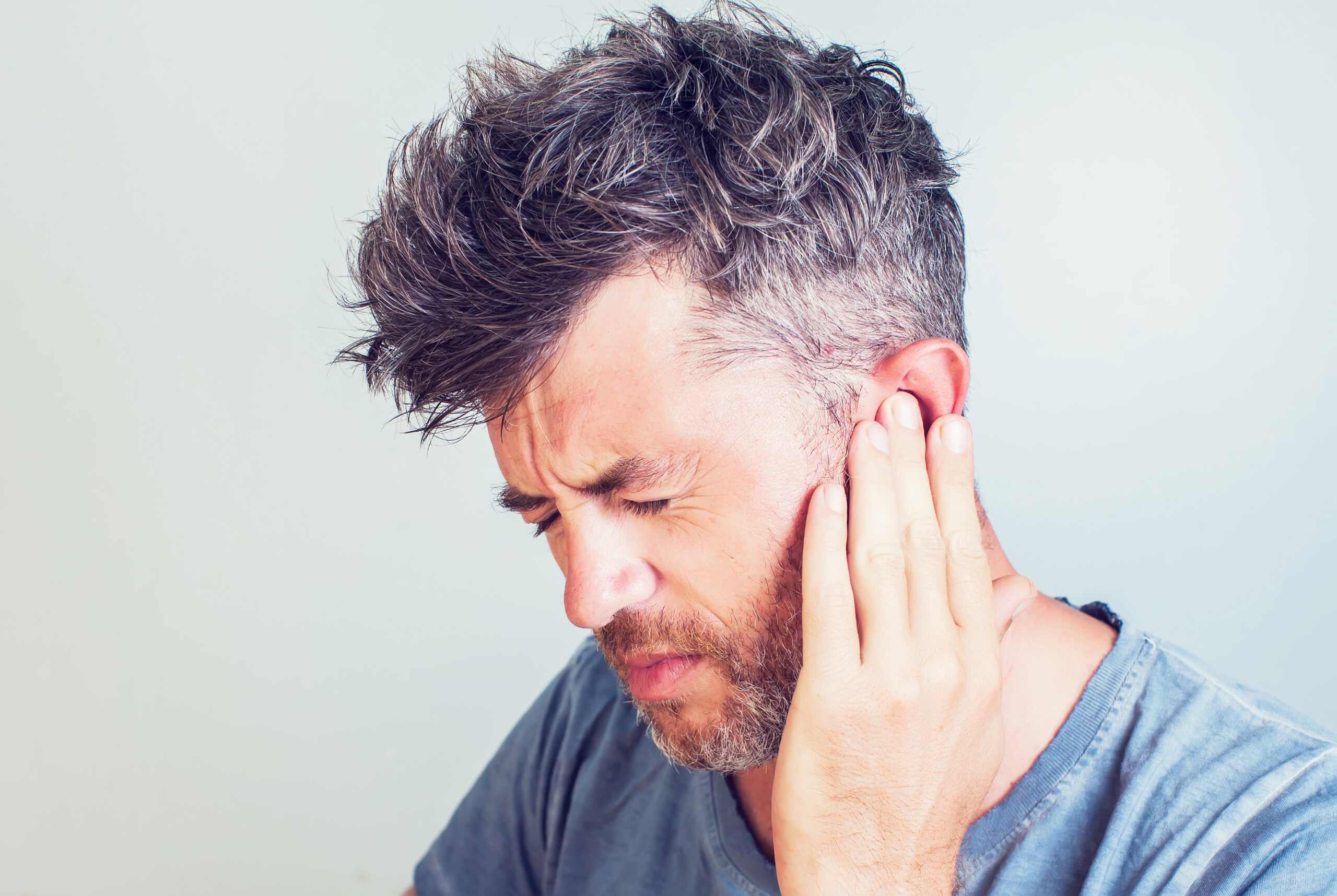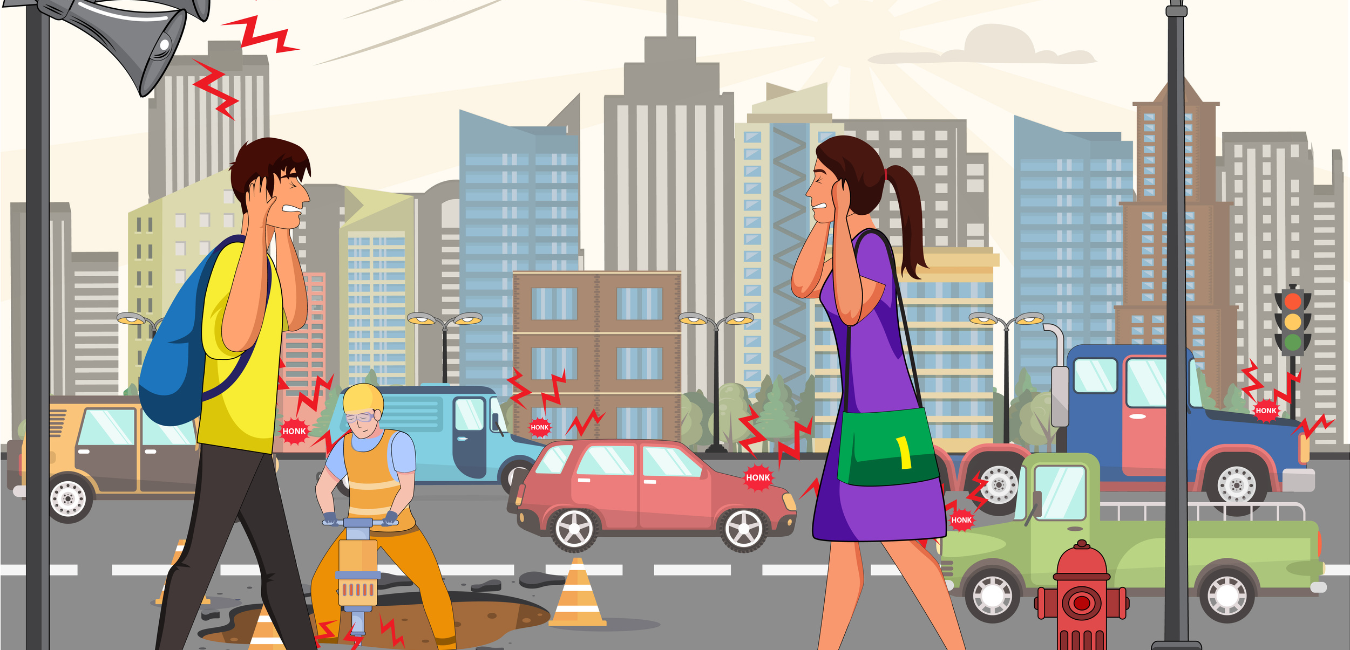The Connection Between Brain Injuries & Hearing Loss
The human brain is like our onboard computer, responsible for the processing of sensory signals, communication, cognitive function, and more. When someone sustains an injury to the head that impacts the brain, they are at risk of suffering complications to their mental and physical well-being, with varying behavioural, cognitive, emotional, and physical side effects.
Often following a traumatic brain injury (TBI) or concussion, patients are asked about memory and recall, visual changes, pain, headache, presence of nausea and/or vomiting. Physical impairments of limbs and head, neck, and trunk are also common.
However, did you know that hearing loss is another impairment that can be experienced post-trauma?
Damage to the Ear
During traumatic impact, the internal ear, which is embedded in the head external to the brain, may be damaged, causing temporary or permanent hearing loss depending on the extent and type of injury incurred.
There are two types of hearing loss that may be sustained from this type of injury: Sensorineural Hearing Loss and Conductive Hearing Loss.
Sensorineural hearing loss (SNHL)
SNHL is the most prevalent type of hearing loss. It occurs with damage to the central nervous system, the auditory nerve, or the cochlea, primarily the hair cells known as stereocilia that receive and transmit sound information to the brain.
It is the most common type of hearing loss sustained after a head injury.
Conductive Hearing Loss (CHL)
CHL occurs as a result of a blockage in the ear canal. This can happen with a waxy buildup, the presence of a foreign object, or transpire after illness or injury.
The impact of a head injury could damage the eardrum, resulting in fluid buildup or swelling leading to conductive hearing loss.
Concussions and Hearing Loss
Did you know that the amount of force behind a concussion is enough to damage the minute bones of the middle ear (called the stapes, incus, and malleus) or injure areas of the inner ear, notably the cochlea? The cochlea is involved with hearing function, which can result in hearing loss if damaged.
Whether you’re on the field, on the ice, or in the back of an ambulance, concussion protocol will include the evaluation of neurological signs, motor and sensory response, and tests relating to cognition, vision, balance, coordination, and should include hearing ability.
Further testing will take place once you reach your medical facility and may include special imaging to rule out fracture, bleeding, and other physical injuries. Additional follow-up appointments with an optometrist and audiologist should be booked to help ensure no lingering effects on vision and hearing.
Many studies show that even a mild reduction in hearing can significantly impact well-being, as it reduces the individual’s desire to be in social settings, which can lead to social isolation, resulting in loneliness, reduced physical fitness, feelings of anxiety and even depression so it is critical to get checked out post-trauma.
Damage to the Brain
While damage to the ears sustained during trauma can result in hearing loss, so can damage to the brain. There is a portion of the brain devoted to processing sounds and making connections to words and meaning in order to understand the signals received.
If that part of the brain becomes injured, though the anatomy of the ear may remain intact, the function may become altered, rendering it difficult to comprehend the world around them. Impaired ability to process and comprehend sound reception can lead to the same social isolation and negative effects as damage to the ear.
It is imperative to seek medical attention after any type of significant head injury, such as falls, collisions (sporting or vehicular), object impact, or anything else that may lead to a concussion or brain trauma.
Early intervention is key, and often you may dismiss symptoms like headaches or poor memory as nothing, when it could be a sign of an underlying condition due to the impact.
Other Conditions Related to Brain Trauma and Hearing Loss
Auditory Agnosia
Auditory Agnosia is a sensory processing disorder that results after damage to the brain. The ear may continue to function as normal, but the brain cannot turn the auditory information into processed information.
Imagine hearing a doorbell, but being unable to connect the sound with the source.
Hyperacusis
Hyperacusis is an extreme sensitivity to or inability to tolerate sound. Even common household noises such as talking, music, or a ringing phone can result in pain and discomfort.
This is a common side effect following head trauma and can lead to social isolation and loneliness.
Tinnitus
Tinnitus is the perceived ringing in the ears without an external source or cause. It is common following a head injury that can last anywhere from days to months, or in some cases may never resolve.
It can result as a consequence of the trauma, or stem use of medications used to help treat the complications of head injury.
How Hearing Solutions Can Help
As you can see, head injuries can cause more damage than simply pain and the proverbial cartoon “seeing of stars.” It can leave you with long-term side effects if not assessed and rehabilitated.
One way we at Hearing Solutions can help is to provide an auditory screening and hearing test to check for any loss. A clean bill of hearing health is the ultimate goal, but for those suffering from mild, moderate, or severe impairment–we have resources to help.
We offer a wide range of assistive devices that can help increase volume and better interpret sounds between the ear and the brain–helping to improve your cognitive abilities. When your brain struggles to process sounds and understand speech, it can’t focus on other tasks, so improving your hearing allows for better brain function, as well.
Hearing aids have come a long way in terms of innovation, technology, function, and appearance. Gone are the days of clunky, oversized units that create unbearable feedback and affect self-esteem.
The new devices are comfortable, discreet and enhance the way you hear the world around you. Don’t fall victim to social isolation; instead, turn to innovation.
Contact one of our expert team members to get assessed and your hearing impairment addressed. We offer online hearing tests at no cost. You can also get in touch with a Hearing Solutions representative at 1-888-811-9799 or reach out online to book an appointment.
Resources
(2022, November 20). Agnosia. Cleveland Clinic. Retrieved May 11, 2023, from https://my.clevelandclinic.org/health/diseases/24463-agnosia
(2021, December 20). Effects of traumatic brain injury can include hearing loss or tinnitus. Healthy Hearing. Retrieved May 11, 2023, from https://www.healthyhearing.com/report/53276-Hearing-loss-traumatic-brain-injury-concussion-tinnitus
(2017, February 2). Concussions Can Cause Hearing Loss! The Center for ENT. Retrieved May 11, 2023, from https://centerforent.com/concussions-can-cause-hearing-loss/#:~:text=The%20force%20behind%20a%20concussion,you%20seek%20medical%20attention%20immediately.
(n.d.). Hearing loss. Brain Injury Canada. Retrieved May 11, 2023, from https://braininjurycanada.ca/en/living-brain-injury/hearing-loss/
Harvard Medical School (n.d.). Hearing aids may help improve brain function. Harvard Health Publishing. Retrieved May 11, 2023, from https://www.health.harvard.edu/mind-and-mood/in-the-journals-hearing-aids-may-help-improve-brain-function
(n.d.). Hyperacusis. Brain Injury Explanation. Retrieved May 11, 2023, from https://www.braininjury-explanation.com/consequences/invisible-consequences/hyperacusis#:~:text=This%20is%20a%20common%20invalidating,adjust%20quickly%20to%20varying%20volume.
(n.d.). Types of Hearing Loss. Johns Hopkins Medicine. Retrieved May 11, 2023, from https://www.hopkinsmedicine.org/health/conditions-and-diseases/hearing-loss/types-of-hearing-loss#:~:text=Conductive%20Hearing%20Loss,-This%20type%20of&text=Sound%20may%20be%20blocked%20by,through%20medical%20or%20surgical%20intervention.








